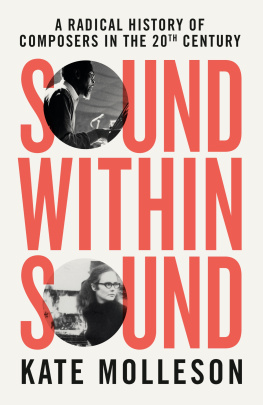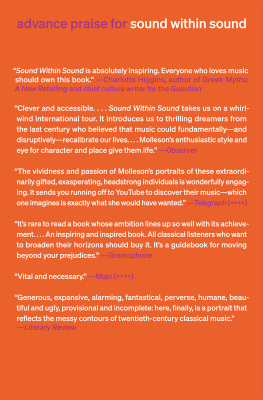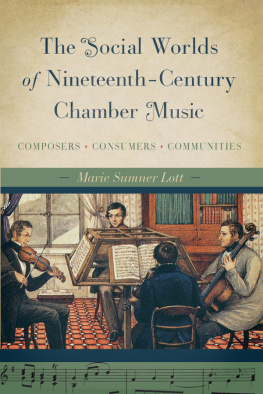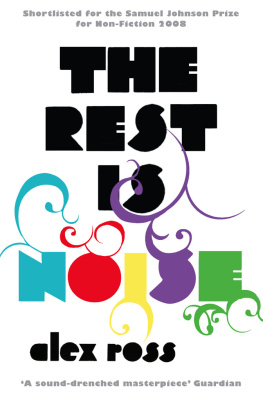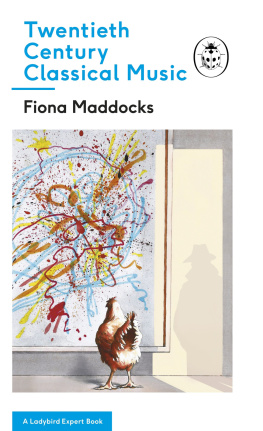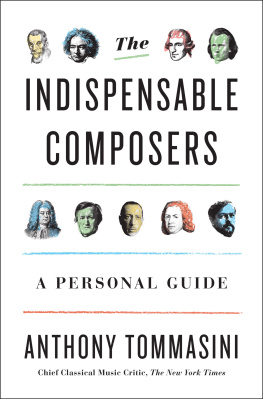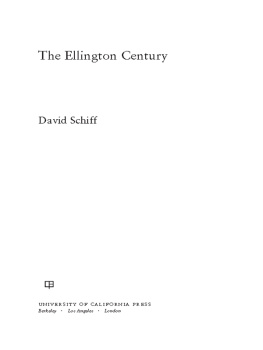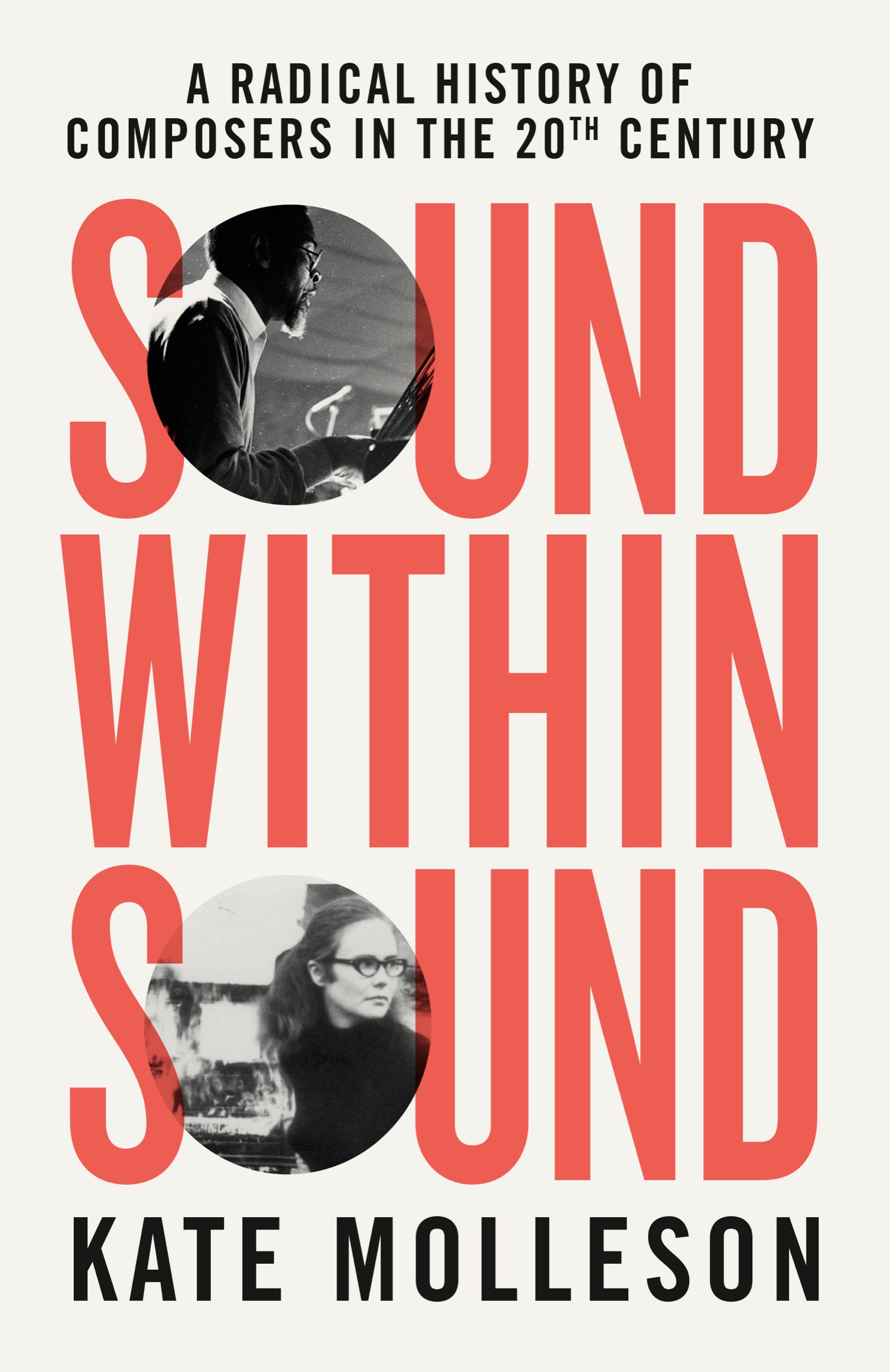Timeline
1900 Amy Beach premieres her Piano Concerto with the Boston Symphony Orchestra. Sibeliuss Finlandia premieres in Helsinki. Kodak launches the Brownie, a cheap camera which democratises photography.
1901 Guglielmo Marconi transmits a transatlantic radio signal from Cornwall to Newfoundland. The Uganda Railway links Mombasa to Lake Victoria.
1902 Julin Carrillo presents his Symphony no. 1 as a graduation piece in Leipzig. The United States declares victory at the end of the PhilippineAmerican War.
1904 Nadia Boulanger begins teaching music theory lessons in her apartment in Paris.
1905 Mass unrest erupts against Tsar Nicholas II in the First Russian Revolution.
1906 The Muslim League forms in Dhaka.
1907 Annie Besant becomes president of the international Theosophical Society in Madras. Alfred Stieglitz makes his photograph The Steerage, documenting segregated classes on a transatlantic crossing. Joseph Marx coins the term atonality.
1908 Bla Bartk goes on his first field-trip recording folk tunes. The Austro-Hungarian Empire annexes Bosnia and Herzegovina, sparking the Bosnian crisis. Canadian actor Florence Lawrence, the Biograph Girl, becomes the first movie star.
1910 Revolution breaks out in Mexico. Boutros Ghali is assassinated in Egypt. Frankenstein becomes the first widely recognised horror film.
1912 Schoenbergs Pierrot lunaire premieres in Berlin after forty rehearsals. The Chinese Empire falls.
1913 Stravinskys Le Sacre du printemps premieres in Paris. Mahatma Gandhi is arrested for protesting against the treatment of Indians in South Africa. Buenos Aires opens South Americas first subway rail network.
1916 The Easter Rising marks the beginning of armed conflict in the Irish revolution.
1917 Bolsheviks seize power in Russia. Erik Saties surrealist ballet Parade premieres in Paris with a scenario by Jean Cocteau and sets/costumes by Pablo Picasso.
1918 Women over the age of thirty win the right to vote in the UK, though it takes another decade for equal suffrage to be achieved.
1922 T. S. Eliot publishes The Waste Land in London. James Joyce publishes Ulysses in Paris. Ruth Crawford writes her first piece, Little Waltz, in Chicago. Ezra Pound declares a new era.
1923 Bessie Smith signs to Columbia Records. Mustafa Kemal Atatrk becomes first president of the Republic of Turkey. In Mexico, Julin Carrillo publishes his Teora del Sonido 13 (Theory of the Thirteenth Sound).
1924 Pablo Neruda publishes Veinte poemas de amor y una cancin desesperada (Twenty Love Poems and a Song of Despair).
1925 Alban Bergs opera Wozzeck premieres in Berlin. Sergei Eisensteins film Battleship Potemkin radicalises film editing in the Soviet Union and around the world.
1926 Leopold Stokowski conducts the premiere of Edgard Varses Amriques in New York. Gertrude Ederle becomes the first woman to swim from France to England.
1928 Joseph Stalin launches his first Five-Year Plan. Alexander Fleming discovers penicillin. Die Dreigroschenoper (The Threepenny Opera) by Kurt Weill and Bertolt Brecht opens in Berlin.
1929 Stock markets crash on Wall Street, triggering the Great Depression.
1931 Ruth Crawford writes her String Quartet 1931 while living in Berlin as the first female recipient of a Guggenheim composer fellowship.
1933 Florence Prices First Symphony is the first work by an African-American woman to be played by any major orchestra.
1934 Umm Kulthum sings for the inaugural broadcast of Egypts state station, Radio Cairo.
1936 Stalin walks out of Shostakovichs Lady Macbeth of the Mtsensk District and two days later the Soviet state newspaper Pravda slams the opera as Muddle Instead of Music.
1936 Haile Selassie flees Addis Ababa after Benito Mussolinis troops invade Ethiopia.
1937 Silvestre Revueltas travels to Europe to fight for the republican side in the Spanish Civil War. Walter Smetak moves to Brazil. Jos Maceda moves to Paris.
1938 Significant oil reserves are discovered in Saudi Arabia.
1940 Else Marie Pade joins the Danish resistance. Conlon Nancarrow moves to Mexico. Also in Mexico: Frida Kahlo paints Self-Portrait with Thorn Necklace and Hummingbird, Trotsky is assassinated and Silvestre Revueltas dies of alcohol-induced pneumonia.
1944 In Cairo, Halim El-Dabh creates The Expression of Zaar, the first piece of musique concrte.
1945 In Buenos Aires, Jorge Luis Borges publishes his short story collection El Aleph (The Aleph).
1946 The Philippines gains independence from the USA. In Addis Ababa, Emahoy Tsegu-Mariam Gubrus visa application is rejected and she turns to God.
1947 India and the newly created Pakistan gain independence from the UK.
1948 A young Peggy Seeger goes missing in a department store in Washington DC and is rescued by Elizabeth Cotten. Israel is created, and the Palestinian Nakba begins.
1949 Indonesia wins sovereignty as Dutch forces withdraw.
1950 Le Corbusier is commissioned to design Chandigarh as a new capital city for Indias Punjab and Haryana states.
1951 Akira Kurosawas film Rashomon wins the Grand Prix (the Golden Lion of St Mark) at the Venice Film Festival and an Oscar, introducing Japanese cinema to the West.
1952 Else Marie Pade and liane Radigue encounter the musique concrte works of Pierre Schaeffer via radio programmes in Denmark and France. The pianist David Tudor premieres John Cages 433 in Woodstock, NY.
1956 Peggy Seeger performs in London and meets Ewan MacColl; the following year he writes The First Time Ever I Saw Your Face for her.
1957 Tru Takemitsu writes his Requiem. John Lennon and Paul McCartney meet at a church garden fete in Liverpool. Laika, a Soviet dog, becomes the first animal to be launched into space.
1958 The United Arab Republic is born with the merger of Egypt and Syria, heralded as the dawn of pan-Arabism (it lasts three years). The Campaign for Nuclear Disarmament (CND) holds its first meeting with philosopher Bertrand Russell as president. Honda releases the Super Cub motorcycle, bringing mobility to millions. At the World Fair in Brussels, Julin Carrillo displays his metamorphoser pianos and Belgium stages a human zoo. In Nigeria, Chinua Achebe publishes Things Fall Apart.
1959 Ornette Coleman releases The Shape of Jazz to Come.
1960 Delia Derbyshire joins the BBC, transferring to the Radiophonic Workshop two years later. George Maciunas founds the Fluxus movement.
1961 Ligetis Atmosphres premieres at the Donaueschingen Festival in Germany.
1962 A nuclear standoff between Krushchev and Kennedy escalates into the Cuban Missile Crisis. Judson Dance Theater stages its first performances in New York City.
1963 Anna Akhmatovas Requiem is published in Munich. Emahoy records her debut album, Emahoy Tsegu-Mariam Gubru spielt eigene Kompositionen, in Bonn. The Association for Humanistic Psychology a significant split from Freudianism and Behaviourism holds its first meeting in Philadelphia.
1964 Stan Getz and Astrud Gilberto release The Girl from Ipanema by Antnio Carlos Jobim.
1965 Malcolm X is assassinated. The Association for the Advancement of Creative Musicians is founded on the South Side of Chicago. The Second Vatican Council (Vatican II) comes to a close in Rome.

